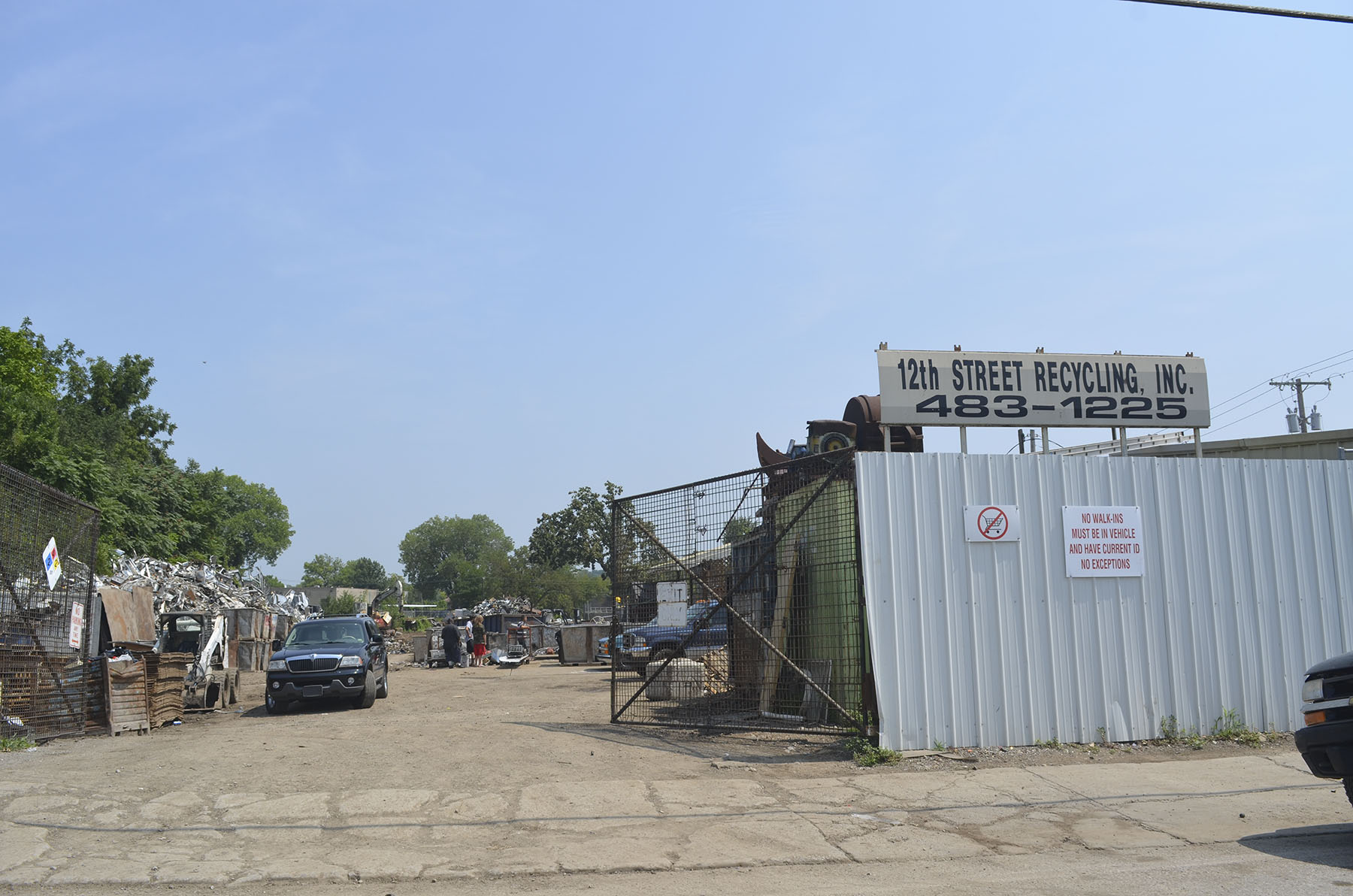Elizabeth Orosco
Northeast News
Representatives and residents from the Historic Northeast stood before City Council Wednesday, Dec. 12 to present the negotiated scrap metal ordinance. While certain portions of the ordinance were not included, the new ordinance adds amended measures that will hopefully, in time, prove to reduce the criminal scrapyard activity that has plagued the Northeast community, its history, and character.
Criminal scrappers stripping homes and selling shopping carts full of stolen metal has been a major pain point for this Historic Northeast Community. Neighborhood leaders and residents presented the negotiated ordinance to the City’s Neighborhoods and Public Safety Committee in hopes of seeing some changes.
Last year, a State of the Northeast Forum was held to present various issues to a panel of elected officials. The scrap metal issue was one of five on the list of Call To Action. The turnout of 130 people and a 10-person panel proved that this issue was of major concern to local residents.
In August this year, the neighborhoods came together to present an ordinance to the Council after much collaboration with neighborhood leaders, residents, Kansas City Police Department, and Regulated Industries. Representatives from the scrap metal industry were also present, and stood in opposition to the proposed ordinance. Councilwoman Canady expressed concerns that the scrap metal industries had not been included in the conversations and suggested a negotiation should take place between the scrap yard owners and the neighborhoods.
The result was an ordinance that would add the prohibition of trafficking of burnt copper wire, eliminate the trade of metal, and continue the requirement of showing a valid ID when selling.
While these were added, cash transactions and a three-day hold on payment were not included in the ordinance. Neighborhood leaders and residents were vocal regarding their frustration of not including these important pieces to the ordinance, saying this would greatly reduce the criminal scrapping activity taking place.
Mary Cyr, Director of Northeast Alliance Together spoke to the Council, focusing on the impact these criminal scrappers have on vacant homes. She addressed that scrappers will rip out the electrical, mechanical, and plumbing systems to sell to local scrap yards. She outlined the ripple effect this has on the community.
Once vacant homes are scrapped for metal, they are not feasible rehab projects because they require a substantial amount of money to bring them up to occupancy standards for selling or renting. If the copper wire is burnt by criminal scrappers, fires likely start, which leaves the home beyond repair, placed on the dangerous buildings list, and eventually demolished.
“We don’t need any more vacant lots in the Northeast,” said Cyr. “Vacant lots give a message to people coming in from the outside that this is not a prosperous community, that this is not a desirous community in which to live. So we are hoping to reconsider this ordinance as presented and help us move ahead so the Northeast can be a more prosperous and viable community in which to live.”
Gregg Lombardi, Executive Director of Neighborhood Legal Support, said people walking down the street with shopping carts full of stolen metal from homes is really demoralizing to neighbors and neighborhoods.
“To see someone walk down the street and know that essentially nothing could be done to stop them because by the time the police are called, they will be gone, and will have sold the metal before the police get there,” he said.
Joe Kavel with Advantage Metal Recycling spoke to the Council, saying the resulting ordinance would bring about positive effects for both the neighborhoods and scrap metal industries.
“As an industry, we do not condone the trafficking of stolen metal of any kind,” he said. “We have on hand and utilize extensive measures to avoid the purchase of stolen material and through this collaborative process, we feel that what has been developed is a comprehensive solution that will have great impact on these issues.”
Laura Remy, Secretary of Independence Plaza, addressed the issues of the price tag attached to the effects of criminal scrappers.
“I’d also like to mention the cost to the city in terms of putting out the fires, demolishing the buildings, the cost to the neighborhood losing houses, affordable housing… there are a lot of costs to be considered,” said Remy. “Our ultimate goal with this ordinance is that it protects neighborhoods.”
A few buildings that her husband worked through Legal Aid to rehab were scrapped and caught on fire before the court process finalized.
“I want to give you a glimpse of the neighborhood anguish we go through with these properties that are otherwise redeemable but can’t be because of the scrapping that takes place.”
Robert Ortman, Vice President of the Lykins Neighborhood, said the history and character of the neighborhood is being lost.
“It’s the Historic Northeast and we are having our history just scraped away from us.”
The ordinance passed as amended, which does not include the no cash transactions and three-day hold but includes measures that residents hope will create more barriers for criminal scrappers to go through when attempting to scrap and sell stolen metal from historic homes in the Northeast.



















